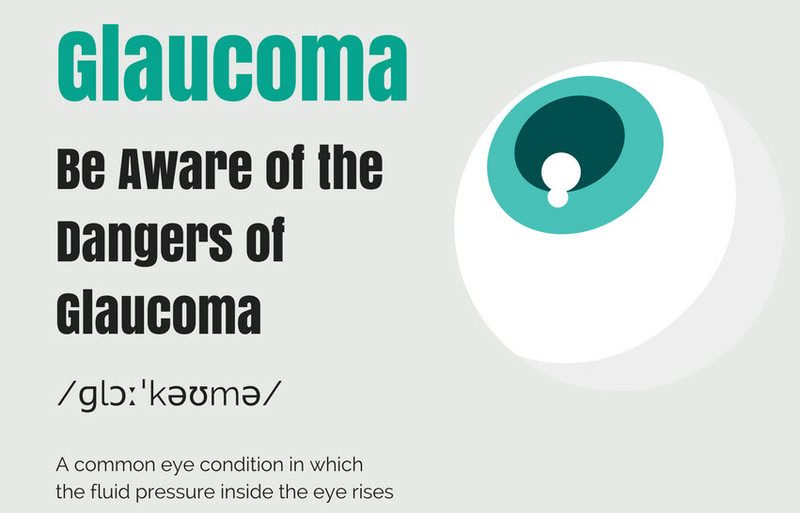Glaucoma is one of the leading causes of blindness in the world. It is caused by high pressure inside the eyes which if left unchecked, damages the optic nerves leading to blindness. Two most common types of Glaucomas include: 1. Open-angle Glaucoma - This type of glaucoma, unfortunately, is usually detected when it's already in its advanced stages. The only symptom you might experience is gradual vision loss, and that may not necessarily be associated with glaucoma. 2. Acute Angle Closure Glaucoma - This type of glaucoma manifests and advances very fast. The symptoms are usually more visible and they include:
- Eye pain
- Nausea
- Colored rings around lights
- Blurred vision
Can Vitamins Help Glaucoma?
To manage and prevent glaucoma, your diet needs to have plenty of antioxidants. Our bodies naturally produce free radicals and antioxidants. However, high levels of free radicals can compromise our immune system, leading to a number of illnesses. Antioxidants neutralize the effects of free radicals and create a balance. Unfortunately, our bodies do not continuously produce enough antioxidants to neutralize free radicals. This is why we need external sources of antioxidants to maintain the balance. With that being said, vitamins function as antioxidants and below are some of the vitamins that you should incorporate into your diet, in order to reduce the risk of getting Glaucoma: Vitamin C The good thing about Vitamin C is that it is soluble in water so your body can easily expel any excess amount you consume. Research shows that Vitamin C lowers ocular pressure in patients who already suffer from glaucoma. You can get Vitamin C from citrus fruits like oranges and green leafy vegetables like spinach and kale. Vitamin A Research done by Spanish Society of Ophthalmology showed that people who eat foods rich in Vitamin A have a lower chance of developing age-related eye diseases such as macular degeneration, cataracts, and glaucoma. Sources of Vitamin A include carrots, dairy products, liver, eggs, fish liver oil and oily fish. Vitamin D A deficiency in Vitamin D has been associated with open-angle glaucoma. Sources of Vitamin D include cheese, egg yolks, fatty fish like tuna, beef liver, leafy green vegetables like kale and spinach. Vitamin E Increased levels of glutamic acid (a type of amino acid) in our bodies have been known to increase the chances of developing glaucoma. Vitamin E helps to reduce the toxicity of glutamic acid and improves vision in most glaucoma patients. Sources of Vitamin E include sunflower seeds, spinach, sweet potatoes, avocado, almonds, butternut squash, olive oil, trout and palm oil among others. Beta-carotene Beta-carotene is a precursor of Vitamin A. This means that when we eat foods rich in beta-carotene, our bodies convert it into Vitamin A. it's actually the red or orange pigment found in fruits and vegetables. Beta-carotene is an antioxidant, and it helps prevent cell damage caused by free radicals. Sources of beta-carotene include asparagus, Chinese cabbage, apricots, grapefruit, ketchup, kale, herbs, and spices like parsley, paprika, oregano and chili powder, onions, pumpkins, bell peppers and so much more. Lutein and Zeaxanthin Lutein and zeaxanthin, also known as eye vitamins , prevent damage to the optic nerve and may help prevent some cases of glaucoma. Sources include cabbage, broccoli, spinach, collard greens and kale. Vitamin B12 Clinical studies show that Vitamin B12 preserves eyesight in patients suffering from glaucoma by insulating the nerve cells in the eyes. In the studies, samples of glaucoma patients were given 1,500 mcg of Vitamin B12 every day for five years. Results from the studies reported that patients' peripheral vision had improved- there was better control of the fluid in their eyes, and visual acuity was more stable. You can get vitamin B12 from dairy products, eggs, poultry, red meat and fish. Plant foods do not contain Vitamin B12, but fortified breakfast cereals usually do. It's always best to get all your vitamins direct from natural and organic sources. When taking vitamins and supplements, you have to ensure you are taking the right dosage to get the most benefits from it. In addition you need to make sure that you protect your vision and visit your ophthalmologist regularly. This is especially true if you are a member of one or more of the risk groups.Infographic Image: Dangers of Glaucoma


